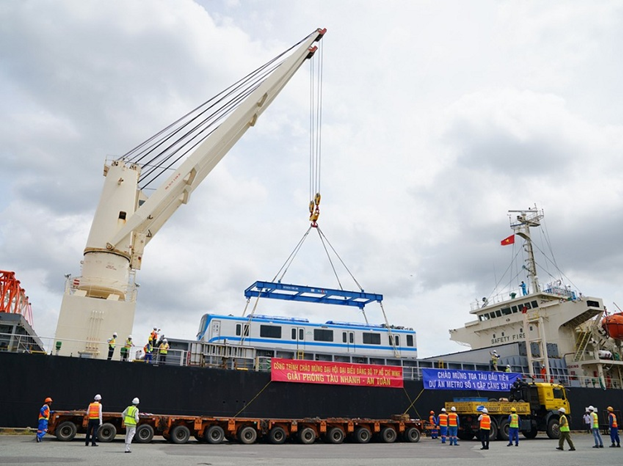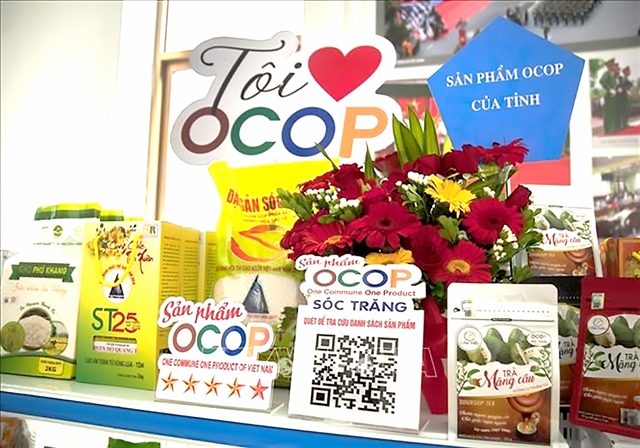 Economy
Economy


|
| Sóc Trăng Province's OCOP products showcased at the workshop. — VNA/VNS Photo |
HÀ NỘI — The One Commune One Product (OCOP) scheme has encountered a challenge in promoting local products, as producers face difficulties getting their products into local supermarkets, let alone big retail systems in major cities.
According to the Department of Industry and Trade of the northern province of Vĩnh Phúc, statistics reveal that the province currently boasts 105 OCOP products.
Among them, 26 products meet the four-star OCOP standards, 79 products meet three-star OCOP standards and many other high-quality traditional products.
Many of these products are exported.
However, a representative of the provincial Department of Industry and Trade told Đại Đoàn Kết (Great Unity) newspaper that although OCOP products were of high quality and high economic value, which met the requirements of standards and regulations on goods as prescribed, they still had no place in retail supermarkets and stores.
Deputy Director of the Centre for Information and Digital Technology under the Việt Nam E-Commerce and Digital Economy Agency Bùi Huy Hoàng said that one of the reasons why local OCOP products were locked in output, especially in consumption at supermarkets, was because farmers mainly produced in small and fragmented ways, without traceability, records and documents in transactions and purchases.
In addition, he said businesses had not paid much attention to building brands, packages and labels. This made OCOP products not accessible to the modern retail system.
Vũ Vinh Phú, former Chairman of the Hà Nội Supermarket Association, said that there were still factors in the system of supermarkets, especially supermarkets with foreign elements, had very high input standards.
This required manufacturers to meet the regulations and criteria set by retailers as well as based on the needs of consumers and State management agencies. Retailers must impose those regulations on manufacturers, said Phú.
Agricultural experts said that for OCOP products to open up output, distributors and manufacturers had a common responsibility to build trade and connections to bring goods to consumers.
In particular, the responsibility of distributors was very important because only they knew what consumers need to guide manufacturers, said experts. — VNS




